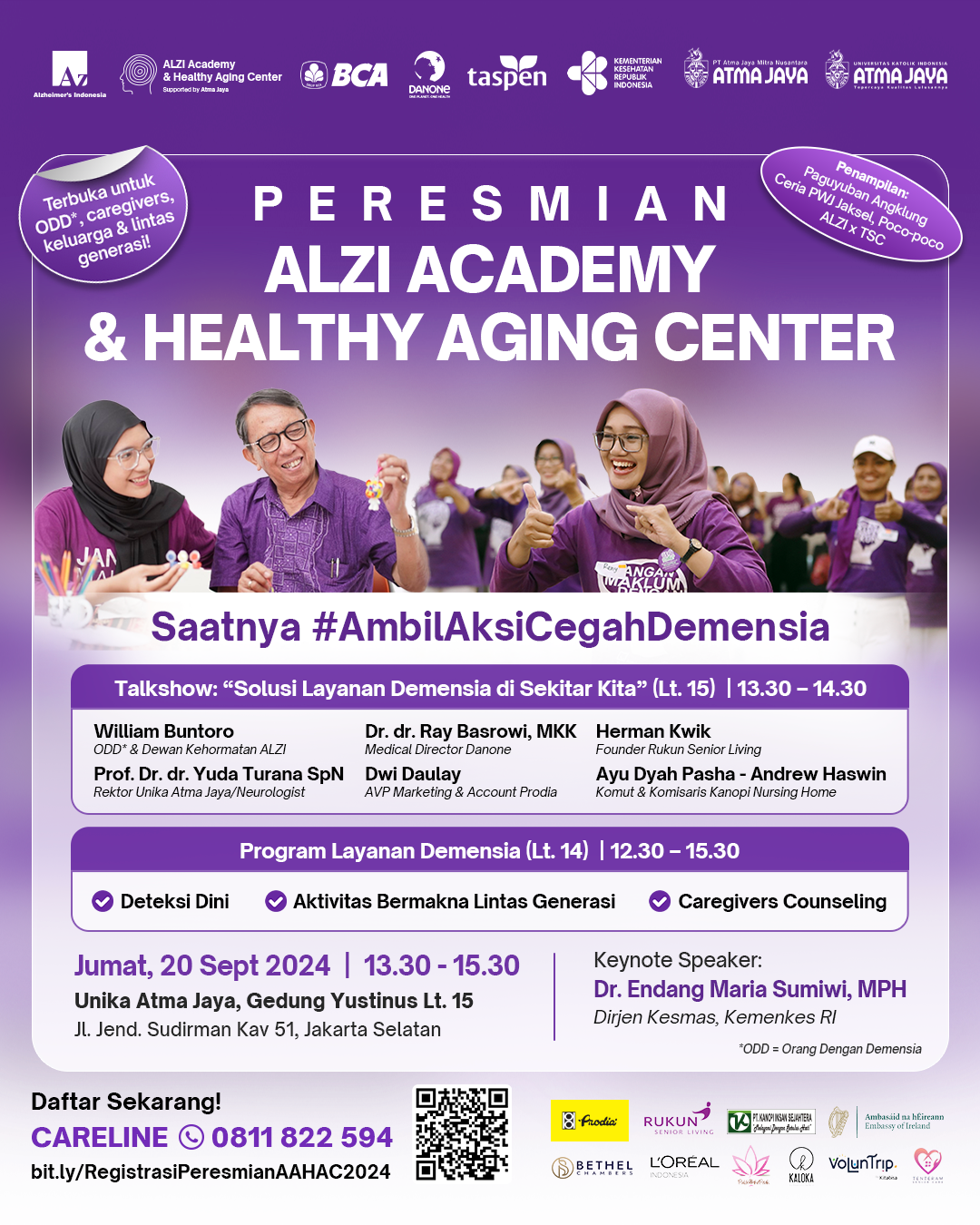
The COVID-19 outbreak has caused many people to experience serious health conditions requiring hospitalisation or even resulting in death. Whether it is the death or illness of a close person, breaking bad news to anyone is never easy, let alone having to deliver it to a person living with dementia.
When a family or close relative has to be quarantined or hospitalised, or if someone in the family passed away, the dilemma that often arises is: is it necessary to tell this to a person with dementia? Would they understand it? Would this put more burden on their mind?
Everyone reacts to bad news in different ways. The way it is delivered also has a significant impact on how someone deals with it. Delivering bad news is a difficult task. However, sometimes the benefit outweighs the risk. Trying to hide the fact might result in the person with dementia feeling left or rejected. For example, when a family member who is close to him died and it is hidden from him, he might think that this person no longer cares because they never visit or call again.
There are things to consider when breaking bad news to a person living with dementia:
1) The progression of the dementia
Understand their current stage of dementia. This will affect how to deliver the bad news, including the choice of words and to which extent the information needs to be delivered. It is important to understand that dementia can affect not only the thought process but also how they express emotion. This means their reaction to receiving the bad news may not always be appropriate.
2) Who delivers the news
It is better to appoint one person whom the person with dementia is comfortable to talk to, to be the main person to deliver the news and give updates to the person with dementia. Keeping the messenger consistent may help them connect the information better. If there are several family members present, avoid several people talking at the same time. Let the main person deliver the news first and give sufficient time for the person with dementia to respond or ask questions. The others then can take turn giving verbal or non-verbal support afterwards.
3) Time and place
Make sure you are both not in a rush and have sufficient time to talk, particularly to answer any question that the person with dementia might have. Also make sure the person with dementia have had sufficient rest, which will help them understand and process the information. Avoid noisy place, choose for a quiet and calm room where they can focus on your voice. Try to share the news as soon as possible, especially if it means there will be someone absent from their routine which might make them agitated.
4) Choice of words
Always use the language the person dementia is most fluent in and use words which are easy to understand. Dementia makes it difficult for someone to understand idioms or euphemisms. For example, tell them the person ‘has died’ instead of using euphemisms such as ‘passed away’, ‘no longer with us’, ‘at peace now’, or ‘in a better place’.
5) Pay attention to their reaction and give the needed support
Validate their feelings and let them express their emotions. Avoid dismissive responses, such as “don’t think about it!” or “you should not let this worry you”.
Acknowledge that this news is indeed difficult to process, but that you are there for them and reassure them that you both will be be able to get through this together.
Sometimes, at an advanced stage of dementia, one can forget about the bad news. Sometimes they need to be told several times until they can really retain the information and accept the change. For example, a person might forget that his brother has died. However, he keeps on forgetting it and every time he is reminded he goes through a great deal of shock and sadness all over again as if he just heard the news the first time, it is alright if you might not want to tell them the bad news again.
Researchers Tuffrey-Wijne and Watchman (2015) identified steps in delivering bad news to people with cognitive problems, such as dementia:
1) Consider his current background knowledge
2) Understand what the ‘bad news’ is, and divide it into small chunks of information
3) Gradually provide the chunk of information you have, starting with what the person needs now
4) Check the person’s understanding and reaction, sometimes you need to repeat the information
Case study:
Alisa lived with her father who had been diagnosed with mild-moderate stage of dementia, Mr. Sumarso. Alisa was told that Uncle Sumardi, her father’s brother had been suspected to be infected with COVID-19 and had to be hospitalized. All members of Uncle Sumardi’s household were instructed to self-quarantine, including the grandchildren.
Alisa considered Mr. Sumarso’s understanding at this time:
- Mr. Sumarso understood that at the moment the COVID-19 outbreak was happening
- He knew that his older brother was living with his son and daughter-in-law and two grandchildren
Alisa divides the information into several sections:
– Uncle Sumardi was hospitalized as a COVID-19 suspect
– He was conscious, but experiencing shortness of breath
– Although he had not been confirmed for COVID-19, everyone in that household had to self-quarantine. This included two grandchildren who usually visit Mr. Sumarso’s house every two weeks
– Other family members, including Mr. Sumarso, may not visit Uncle Sumardi
Alisa decided that the information her father needed now was that Uncle Sumardi was hospitalized. She gave the other information step-by-step according to Mr. Sumarso’s responses and questions. When Mr. Sumarso expressed his worry and asked when he could come visit, Alisa acknowledged her father’s worry and retold the information that unfortunately no one were allowed to visit yet. Alisa informed him that she would give him daily updates about his brother.
References:
- Tuffrey-Wijne, I., & Watchman, K. (2015). Breaking bad news to people with a learning disability. Learning Disability Practice, 18(7), 16–23. https://doi.org/10.12968/bjon.1998.7.2.86
- Crossroads Hospice & Palliative Care. (2018). Breaking bad news to someone with dementia. Retrieved April 21, 2020, from https://www.crossroadshospice.com/hospice-palliative-care-blog/2018/june/26/breaking-bad-news-to-someone-with-dementia/


